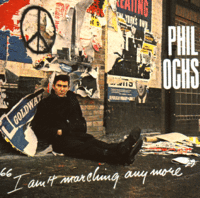
Want to pursue a (relatively) quick and engrossing study of the modern libertarian movement? Just browse through old issues of
The Libertarian Forum, a newsletter edited and (in large part) written by Murray N. Rothbard between 1969 and 1984.
Murray’s
Forum reported in “real time” the libertarian break with the conservative Young Americans for Freedom (YAF) in 1969. It presented month-by-month
Murray’s flirtation with the New Left and his efforts (and eventual failure), between 1969 and 1971, to build a Left-Right anti-state/anti-war coalition. Shortly after his break with Goldwater Republicans and his union with the New Left, the great Karl Hess wrote some wonderful and highly radical columns for
LF in its first two years of publication; Karl’s gradual split with
Murray over style and strategy is quietly documented in these early issues. Many philosophical and tactical arguments were fought and documented in the pages of
The Libertarian Forum. For example, early battles about launching a "Libertarian Party" vs. non-political libertarian action took place in the
Forum. Besides Rothbard and Hess, other celebrated contributors to
LF included Leonard Liggio, Jerome Tuccille, Roy Childs, Butler Shaffer, and Walter Block.
During my passage from Young Republican to radical libertarian, beginning in Summer 1970,
The Libertarian Forum was my primary lifeline to the movement and a vital educational resource. I stopped subscribing to
LF in the mid-’70s, but kept a box of back issues for years until it was lost during one of my moves around the
L.A. area. A decade ago, through Amazon.com, I bought a bound volume of issues dated March 1969 to April 1971, which I’ve cherished. But any issues beyond that, including many I’d never seen at all, seemed forever out of reach.
Until now.
Once again, it’s the Mises Institute to the rescue. Buoyed by a generous donation from Walter Block, Mises.org now offers a near-complete, 1969-1984,
downloadable PDF archive of The Libertarian Forum. And, like their online archive of the classic libertarian journal
Left and Right, this resource is
absolutely free.
I’m in heaven. A longtime dream has become reality.
Tons of long-out-of-print Rothbard writings are now available for us to pursue. The entire glorious goddamn history of This Movement of Ours is now at our fingertips! This latest gift from the Mises Institute to radical Rothbardians may be the most valuable treasure we’ll see in another decade or more.
-----
Technorati Tags:
New Libertarian,
Movement of the Libertarian Left,
Libertarian,
Anarchism





















